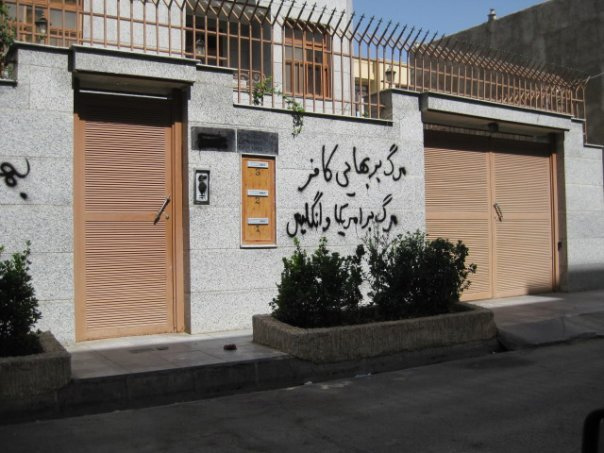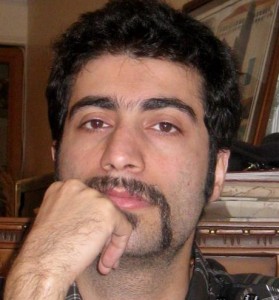
Asylum, a logical solution for Bahais? / Pouyan Makari
This is not a complete sentence and cannot be accurately translated. Please provide the full text for an accurate translation.
Pouyan Makari
To begin discussing the migration of Baha’is from Iran, which often occurs through seeking asylum, it is important to know that the Baha’i population was estimated to be over one million people two years before the revolution. This is significant because at that time (in 1976), the population of Iran was around 33 million, and by 2006 it had doubled to over 70 million. Therefore, it can be assumed that the Baha’i population in Iran has also doubled. However, according to statistics published by the global Baha’i community in 2006, the number of Baha’is in Iran was estimated to be around 300,000. Unfortunately, the Iranian government has never allowed the exact number of Baha’is in Iran to be determined and has always tried to show their number as much lower than the reality. But even with these statistics and figures, we can still understand the depth of the tragedy; after three decades of the Islamic Republic,
Bahá’ís who travel from Iran to Turkey in order to seek refuge in other countries through the assistance of the United Nations High Commissioner for Refugees (UNHCR), generally leave Iran for three reasons: economic difficulties, deprivation from education, and security pressures.
Economic problems.
A significant portion of the Baha’is are leaving Iran due to economic difficulties. The main reason for the economic problems of the Baha’is is the systematic pressure that the Islamic Republic has imposed on them since its inception. The economic pressure began with the confiscation of many Baha’i properties. The calculation of Baha’i properties that have been confiscated by the Islamic Republic for various reasons in the 1990s is staggering; these properties include homes, commercial buildings, agricultural land, and factories that either belonged to Baha’is or were owned by the Baha’i community in Iran. These properties are now in the hands of various government institutions or have been sold by these institutions to others.
The second stage of economic pressure on the Baha’is began with the expulsion of Baha’is from administrative and government positions. Throughout the thirty-plus years of the Islamic Republic, no Baha’i has been allowed to be employed in any part of the government, or even work
But this is not the end; in these low-paying jobs, Bahais have always been subjected to various forms of harassment and persecution. The widespread closure of Bahai shops in cities such as Semnan, Hamedan, Bandar Abbas, Rafsanjan, and Sari by government agencies or other state institutions, in the first three years of Hassan Rouhani’s government, are just small examples of these pressures. Despite all of this, the most logical solution for Bahais is to leave Iran and strive to live in a country where their first human right, the right to employment, is respected.
Deprivation from education.
Since 1980 and the beginning of the Cultural Revolution, Baha’is have been deprived of studying in Iranian universities. This deprivation has been followed in the following years and under different governments with various excuses and methods. Many Baha’i youth and their families try to test their luck in other countries for this reason. In the past thirty years, the only certain way for Baha’i youth to study has been to go to other countries.
Security issues.
Fewer Iranians are aware of the security measures taken against the Baha’is from the beginning of the revolution until now. Widespread arrests of Baha’is, home searches, long-term imprisonments, and even executions in the 1960s were considered normal and many Baha’is who remember those days still live in fear of a repeat. Dozens, and close to 200 Baha’is were executed during the Islamic Republic, and it is rare to find a Baha’i family without at least one member having been imprisoned or detained. While Baha’is are no longer executed, many still face imprisonment simply for being Baha’i. For example, in the spring of 2014, there were 117 Baha’i prisoners in Iran, and in just a 5-month period from February 2014 to May 2014, eleven Baha’i citizens in the city of Yazd were sent to prison by the Revolutionary Court.
In addition to these issues, the government’s advertising pressure on television, newspapers, and schools continues to affect Baha’i families and their children. In the past year, Baha’is in many cities of Iran have faced numerous difficulties from security institutions, even for burying their deceased loved ones.
With these circumstances, it can be confidently said that the main reason for Baha’is leaving Iran is the systematic discrimination and calculated pressure from the government, which can be seen in three forms.
However, despite the main role of the government in this issue, social issues are not unaffected. The fear and intimidation of many Iranians from having connections with Baha’is and having a non-self view of Baha’is has always intensified psychological pressure on Baha’is. On the other hand, it seems that if the negative propaganda of the government against Baha’is does not have buyers, the government’s pressure will be limited in its actions.
Despite the fact that many civil activists claim that the perception of the Iranian people towards the Baha’is has undergone fundamental changes in the past thirty years, it seems that this change has occurred in the view of the urban middle class and the lower class of society still maintains a negative view towards the Baha’is.
After seeking refuge.
As mentioned, after the Iranian Revolution, a wave of Baha’i emigration from Iran began. In the early years of the revolution, due to the deprivation of Baha’is from having passports, a large number of Baha’is resorted to illegal means to cross the border and reach Pakistan. It seems that the Islamic Republic, in its first decade, tried to turn Iran into a large prison for Baha’is. But then a noticeable change in the ruling policy occurs and not only is the deprivation of Baha’is from having passports lifted, but they are also encouraged in various ways to leave Iran and seek refuge in other countries. In some cases, even one-time use passports have been issued for young Baha’is who were unable to have a passport due to military service issues.
On the other hand, due to the continuous efforts of the global Baha’i community to expose the systematic discrimination against Baha’is in Iran, the Yavanasar office in Turkey has shown more flexibility towards Baha’is. Third countries or countries of asylum also welcome Baha’is with open arms. This has resulted in Baha’is staying in Turkey for a shorter period of time in order to reach their final destination compared to other political and social refugees. For example, before the recent wave of refugees from Syria and other Middle Eastern countries, Baha’i refugees in Turkey would stay for one to one and a half years in order to reach a country like the United States, while for political refugees it usually takes much longer, between three and a half to four years.
Furthermore, due to the high population of Iranian Bahá’ís and the presence of Bahá’í organizations in Turkey, Bahá’ís are somewhat able to support each other. This is very beneficial and helpful in dealing with the economic and psychological pressures in Turkey.
However, the better conditions for Baha’i refugees compared to other refugees should not lead to the misconception that Baha’is have an easy way to seek refuge in other countries. They still face many difficulties that forced them to leave Iran in the first place. The cost of living in Turkey, for at least a year and a half, is also a burden. On the other hand, although the right to work in Turkey has recently been recognized for refugees, many Baha’i refugees, like other refugees, are unable to exercise this right for various reasons. As a result, they have to spend their life savings to stay in Turkey, which further weakens their economic situation. Additionally, the destination country will also play a determining role in their economic situation, and the global economic crisis, failure to pay proper allowances, or unemployment will undoubtedly make it a long road for them to achieve a stable economic situation.
Regarding the issue of deprivation from education, Baha’i youth who leave Iran for this reason are also deprived of continuing their education during their stay in Turkey. They are unable to study officially during this time. On the other hand, since the designated cities for refugees have limited facilities, suitable educational centers cannot be found in these cities. Upon arrival in the destination country, these refugees face many challenges such as obtaining educational documents, learning the language, and other issues, which cause them to fall behind in their studies compared to their peers of the same age.
The question here is why should the pressure on a religious minority in Iran be so high that they have to come up with various solutions to leave the country over the course of three decades, due to their disappointment with the government and Iranian citizens?
On the other hand, why do different political and civil groups in Iran turn a blind eye to the issues of the Baha’is and succumb to the psychological pressure imposed on them? And despite the continuous efforts of Baha’i activists, why do political and civil groups still not have a clear solution for the Baha’i problem?
Footnotes:
1- Like many other societies, there are Bahá’ís who have been able to achieve financial success despite facing multiple pressures and discrimination. However, the existence of exceptional individuals is not a reason to dismiss the economic discrimination against Bahá’ís.
2- Since 1366, the Baha’i community in Iran has established the Baha’i University. Despite the success of this university, the education of Baha’i youth at the university level has never been able to address the issue of deprivation from education for Baha’is.
 Created By: Pooyan Mokari
Created By: Pooyan MokariTags
Baha'is Bahai refugees Monthly magazine number 53 Monthly Peace Line Magazine Pouyan Makari Refugee Religion